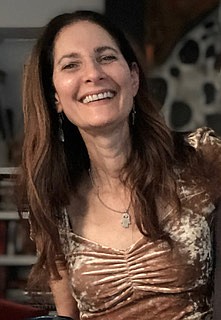A few weeks ago when my husband was out of town, I did a search for movies starring Judd Nelson. This is because 1) I fell in love with his heart-throbby self in "The Breakfast Club" a few years ago, and 2) I am, as my friend Sydney would say, "ridiculous." I discovered that Nelson has been in close to 100 movies besides "TBC," none of which I've seen, and none of which, save for one, I was moved to watch. That one is called "The Dark Backward." Heard of it? Of course you haven't. You are not ridiculous.
"The Dark Backward" hit theaters in 1991. It was written by Aaron Rifkin when he was 19 years old and got a 45% rating on Rotten Tomatoes. That's better than some of Rifkin's later movies, like "Zoom," which got a rating of 3%, and "Garbanzo Gas," which is presumably so bad it can't even be rated.
The plot of "The Dark Backward" is fairly straightforward: Judd Nelson plays the perpetually sweaty, perpetually astonished-looking Marty, a garbage collector who moonlights as a comedian in a seedy, mostly empty nightclub. His jokes are brainless and unfunny, and he is eventually fired from his gig. But when he suddenly spouts a third arm out of the middle of his back (prompting him to seek medical treatment from the hilariously clueless yet arrogant physician played by James Caan), his luck changes.
This is a movie about friendship, living life to the fullest, the empty promise of success and following your dreams. I'm just kidding. This is a movie about a guy with a terrible sense of humor who sprouts an extra limb. If that doesn't make you want to see it, perhaps you'd like to befriend Rotten Tomatoes reviewer Lars P., who gave the film half of a star, calling it, "Incredibly bad in all sorts of ways." I don't disagree with Lars; I just happen to like bad things.
My husband is different, however. My husband likes good things. I insisted he watch "The Dark Backward" the minute he got home and kept tabs on his face to see if he was enjoying all the parts I especially enjoyed. But his face did not register pleasure.
"Did you hate it?" I asked when it was over.
"Hate it?" he said. "I don't even want the TV to exist anymore."
This difference of opinion - whereby I like bad things and he likes good things - is somewhat of a problem for us. For example, I liked "The Matrix." But I do not want to watch it every time we find ourselves in a hotel room where it's playing on perpetual loop without the benefit of commercials for relief. This is because, while I appreciate the movie's premise - the idea that we might be living in an alternate reality - I don't find myself moved to endlessly discuss it in the breakfast nook just off the lobby over complimentary Cheerios.
I would, however, be open to discussing at length, in any nook, "Leaving Las Vegas," a movie about a depressed screenwriter (Nicolas Cage) who sets out to drink himself to death. This movie, despite getting a Rotten Tomatoes rating higher than "The Matrix," is actually a one-note flick whose only redeeming quality is that it really is as depressing as it sets out to be. You can fault "Leaving Las Vegas" for many things, among them pointlessness and an ending that purports to be hopeful but is not ... but you can't say it doesn't live up to its promise. And about this, over Cheerios (or any kind of cereal really), I could go on and on. But my husband is not interested, and so I am forced to mull over the movie alone.
There are a number of other things I would be open to discussing that my husband finds too repellent to even consider. Fecal transplants - in which a doctor transplants feces from a healthy donor into another person to restore the balance of good bacteria - is of endless fascination to me. But every time I bring it up over breakfast, I get threatened with divorce.
And there is a part of me that still pines for, and would happily discuss the virtues of, dilapidated houses and wily old trailers and overgrown hay fields like the ones that populated the adopted small town of my early adulthood. I suppose it's because these were my icons of freedom, the first things I saw when I sprung myself from the prison of suburbia and moved to the deep, rural South.
But for my husband - who grew up in the deep, rural South - my icons of freedom are his icons of prison. It's almost as if we live in reverse, whereby what I move toward, he moves away from; what I find fascinating, he shuns.
"It's all over between the two of us. I can't love a man with three hands," says Rosarita, Judd Nelson's love interest in "The Dark Backward." To which I say, "Rosarita, try loving a man who doesn't want to watch a guy soil and drink himself to death on-screen, who won't even consider living in a condemned house in his golden years, who refuses to discuss fecal transplants over eggs and toast - and then tell me your problems. Because compared to me, you've got nothing to complain about."
Dana Shavin is a national award-winning columnist. Email her at dana@danashavin.com or follow her on Facebook at Dana Shavin Writes.
